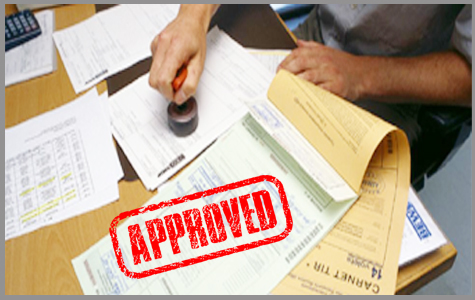Importing Grapes to the UK
Grapes are one of the most popular fruits in the UK, and the country imports a large quantity of grapes each year. The UK grape market is dominated by a handful of major supermarkets, which account for over 90% of grape sales. Importing grapes to the UK can be a complex process, but it can also be a rewarding business opportunity. This guide will provide you with all the information you need to import grapes to the UK safely and profitably.
The UK Grape Market
The UK grape market is worth over £500 million per year. The UK imports grapes from over 20 different countries, with the top suppliers being Spain, South Africa, and Peru. The UK grape market is highly competitive, and supermarkets are constantly looking for ways to reduce their costs. This has led to a trend towards importing grapes from cheaper suppliers, such as South Africa and Peru. However, this has also raised concerns about the environmental and social impact of grape production in these countries.
Importing Grapes to the UK: Requirements and Regulations
There are a number of requirements and regulations that must be met when importing grapes to the UK. These requirements are designed to protect consumers and to ensure that grapes are imported in a sustainable manner.
One of the most important requirements is that grapes must be imported from a country that is approved by the UK Food Standards Agency (FSA). The FSA approves countries based on their food safety standards.
Another important requirement is that grapes must be imported in a way that is sustainable. This means that the grapes must be grown and transported in a way that does not harm the environment or the people who work in the grape industry.
The Import Process
The import process for grapes begins with the importer contacting a supplier in a country that is approved by the FSA. The importer and supplier will then negotiate a price and quantity of grapes to be imported.
Once the agreement is in place, the supplier will pack the grapes in shipping containers and send them to the UK. The grapes will typically arrive at a port in the UK, such as Southampton or Felixstowe.
Upon arrival in the UK, the grapes will be inspected by the FSA to ensure that they meet all of the relevant requirements. If the grapes pass the inspection, they will be released to the importer.
Importing Grapes: Costs and Considerations
The cost of importing grapes to the UK will vary depending on a number of factors, including the country of origin, the quantity of grapes being imported, and the time of year. However, as a general rule of thumb, it costs around £1 per kilogram to import grapes to the UK.
There are a number of considerations that importers need to be aware of when importing grapes to the UK. One important consideration is the shelf life of grapes. Grapes are a perishable fruit, and they have a relatively short shelf life. This means that importers need to ensure that the grapes are transported and stored in a way that maximizes their shelf life.
Another important consideration is the environmental impact of grape production. The production of grapes can have a negative impact on the environment, due to the use of pesticides and fertilizers. Importers need to be aware of the environmental impact of grape production and should take steps to minimize this impact.
Conclusion
Importing grapes to the UK can be a complex and challenging process. However, for those who are willing to put in the time and effort, it can be a rewarding business opportunity.
By following the requirements and regulations set out by the FSA, importers can ensure that they are importing grapes in a safe and sustainable manner.
1. Find a Supplier
The first step is to find a supplier of grapes who is willing to export to the UK. You can find suppliers by attending trade shows, searching online directories, or contacting the trade associations of grape producing countries.
Once you have found a few potential suppliers, you should contact them to request quotes. Be sure to ask about the price, quality, and delivery terms of the grapes.
2. Negotiate a Contract
Once you have chosen a supplier, you will need to negotiate a contract. The contract should include the following information:
- The type and quantity of grapes being ordered
- The price of the grapes
- The delivery terms
- The payment terms
3. Arrange Shipping
Once you have negotiated a contract, you will need to arrange for the grapes to be shipped to the UK. You can arrange shipping yourself, or you can hire a freight forwarder to do it for you.
If you are arranging shipping yourself, you will need to book a shipping container and arrange for the grapes to be transported to the port of loading. You will also need to arrange for the grapes to be cleared through customs upon arrival in the UK.
If you are hiring a freight forwarder, they will take care of all of the shipping arrangements for you.
4. Clear Customs
When the grapes arrive in the UK, they will need to be cleared through customs. You can clear customs yourself, or you can hire a customs broker to do it for you.
If you are clearing customs yourself, you will need to complete a customs declaration and pay any import duty that is due.
If you are hiring a customs broker, they will take care of the customs clearance process for you.
5. Distribute the Grapes
Once the grapes have been cleared through customs, you can distribute them to your customers. You can distribute the grapes directly to your customers, or you can sell them to wholesalers or retailers.
Tips for Importing Grapes to the UK
Here are some tips for importing grapes to the UK:
- Choose the Right Supplier: It is important to choose a supplier who is reputable and reliable. You should also make sure that the supplier is able to meet your quality and delivery requirements.
- Negotiate a Good Contract: The contract should be clear and comprehensive. It should include all of the important details, such as the type and quantity of grapes being ordered, the price, the delivery terms, and the payment terms.
- Arrange Reliable Shipping: It is important to arrange for the grapes to be shipped in a timely and efficient manner. You should also make sure that the grapes are properly packaged to protect them from damage during shipping.
- Clear Customs Quickly: It is important to clear customs as quickly as possible to avoid any delays in receiving your grapes. You can do this by completing the customs declaration accurately and paying any import duty that is due promptly.
- Market and Distribute Your Grapes Effectively: Once you have received your grapes, you need to market and distribute them effectively to your customers. You can do this by developing a marketing plan and by building relationships with wholesalers and retailers.
By following these tips, you can import grapes to the UK safely and profitably.
DOCUMENT REQUIREMENTS
- Certificate of Origin
- Bill of Lading
- Packing List
- Commercial Invoice
- Customs Clearance

